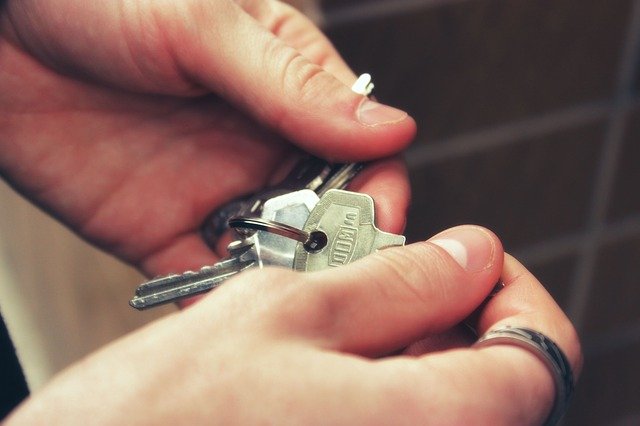Going through an eviction could be the nadir of financial points. Dropping a job, unpaid medical funds and being hounded by bill collectors could be primary life events accompanying an eviction.
Being evicted out of your non-public house or condominium typically is the final financial straw that sends your credit score rating proper right into a downward spiral, affecting your capability to rent ultimately, uncover a job, qualify for loans and completely different get on collectively together with your life.
Whereas an eviction gained’t immediately current up on a credit score rating report, information related to it ought to.
Why be evicted?
An eviction uncover is usually the ultimate of many notices given to tenants who each haven’t paid their rent or have completed one factor that violates their rental contract. You might have a pet that isn’t allowed beneath the lease phrases, as an example, in any other case you may not be defending the property as a lot as necessities set throughout the contract.
With these eviction causes, a tenant can usually settle points by paying rent or fixing the difficulty inside each week or so of being notified of the transgression.
Eviction authorized tips vary by state, and some allow landlords to kick of us out with none explicit set off, as long as it’s not discriminatory and the lease is month-to-month.
Most states require landlords to current a tenant uncover to restore the issue, just like by paying rent, sooner than the licensed eviction course of can begin. Paying the money due and transferring out, if nonetheless required, can stay away from the courtroom eviction course of.
For a landlord to legally evict anyone, they need to sue the tenant in courtroom for not paying. A summons and criticism will then be delivered by a neighborhood regulation enforcement official, telling the tenant when and the place to succeed in for a courtroom listening to, what the proprietor is suing for, and may embody a date to go away the property.
If evicted, the defendant may held liable for once more rent and courtroom costs. That’s when the eviction can start to affect their credit score rating score. Even when the tenant moved out of the property on their very personal, a courtroom can nonetheless require them to pay earlier rent that’s due.
Eviction’s impression on credit score rating
If a landlord wins an eviction lawsuit in opposition to you, the eviction gained’t be reported to the three credit score rating bureaus. Nonetheless the unpaid bill will attainable be reported in case your landlord sends it to a bunch firm that may try to get the money from you, or if the proprietor wins a small claims swimsuit for price.
It will dealt with just like another delinquent debt in your credit score rating report and may keep there for seven years, even in case you finally pay it off.
The outcomes of a eviction may even appear on a credit score rating report through public info that collectors look at to see in case you’re menace for a mortgage. If the eviction resulted in a civic judgment in opposition to you for unpaid rent and courtroom costs, the amount would appear in licensed info obtainable in public info.
Civic judgments will in all probability be positioned throughout the public info a part of a credit score rating report, though anyone reviewing the credit score rating report gained’t see that it’s an eviction. As an alternative, what they’ll see is a judgement for a property administration agency, leaving them to think about it’s for an eviction.
Within the occasion you don’t want to wait seven years or for the statute of limitations on unpaid judgments to expire, you can cut back the implications of an eviction on a credit score rating report by paying off the judgment. Paying it gained’t take away the report out of your credit score rating report, nonetheless it may help your chances of being accepted for yet another rental ultimately.
Whereas future potential landlords gained’t see an eviction listed on a credit score rating report, they will attainable get a rental historic previous report from a tenant screening agency that may current the eviction information, consistent with Experian, a credit score rating reporting firm.
Unpaid funds that go to collections or finish in a courtroom judgment in opposition to you and end up in your credit score rating report can hurt in numerous strategies. Chances are high you will be denied loans, just like for a home or car, or at the very least pays elevated charges of curiosity and produce different prohibitive phrases when making use of for credit score rating.
Employers moreover usually look at candidates’ credit score rating tales — which require an applicant’s written permission — and a low credit score rating score could be a motive for not hiring anyone.
Financial institution card companies moreover look at credit score rating tales. Lease and completely different unpaid funds which have gone into collections will lower a credit score rating score, making it extra sturdy to get a financial institution card. Within the occasion you do get one, it ought to attainable have extreme charges of curiosity.
Stay away from eviction the least bit costs
If a landlord tells you that you just’re late paying rent, pay it as shortly as you can to stay away from being evicted. If it escalates to a civil judgment in opposition to you and likewise you’re evicted, anticipate to affect many various areas of your life ultimately, and for as long as seven years.
Try and work out a price plan collectively together with your landlord, and inform them about your newest job loss or completely different parts leading to your incapability to pay. They may very well be ready to work with you quite than going through the expensive and time-consuming licensed strategy of eviction.
The equivalent goes for dealing with a creditor seeking once more rent from you after a landlord has turned it over to a bunch firm. Ask for written documentation after you’ve paid the bill so you can current future landlords that you just’ve paid your debt.
On the very least, it’s a start to displaying collectors that you just’re extreme about paying your funds.
Related posts
Subscribe
* You will receive the latest news and updates on your favorite celebrities!
Recent Posts
- How To Take away A Chapter From Your Credit score rating Report
- Strategies to Improve Your Credit score rating Score by 100 Components FAST
- The way in which to Take away Value Offs From Your Credit score rating Report
- 3 Strategies to Take away a Foreclosures From Your Credit score rating Report
- Assured Unsecured Credit score rating Taking part in playing cards for People with Harmful Credit score rating



